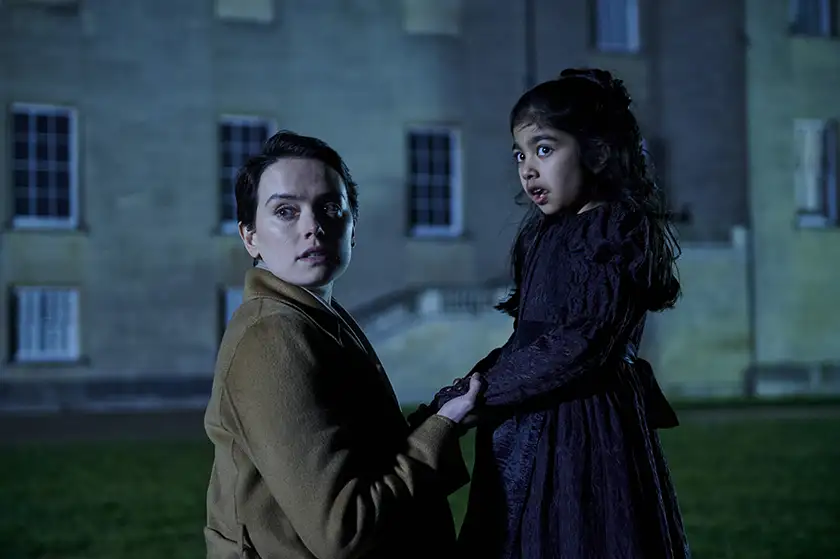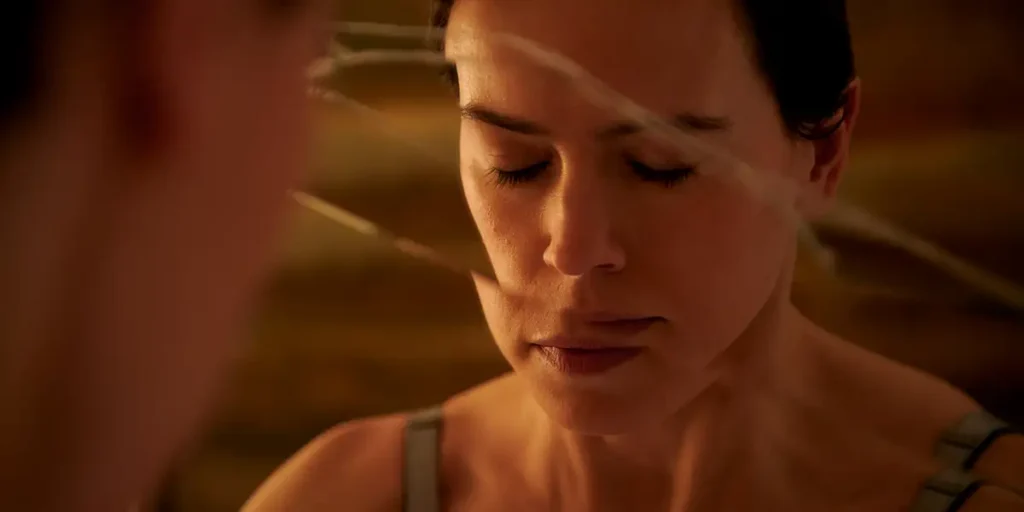Sam Yates’ Magpie is an emotionally charged neo-noir that manages to avoid most clichés and takes advantage of Daisy Ridley’s talents.
Director: Sam Yates
Genre: Thriller
Run Time: 90′
U.S. Release: October 25, 2024 (limited)
U.K. & Ireland Release: November 11, 2024
Where to Watch: in select US theaters, and on digital platforms in the UK, Ireland and more countries
Films about failed marriages, cheating husbands and the difficulties of raising kids are a dime a dozen. After all, these situations can be found in everyday life and thus can feel relatable to some audience members. That is why watching something like Magpie feels so refreshing: it is a movie about a failing marriage and the difficulties of raising kids, but told from a fresh point of view, emphasising the role of a toxic, selfish and self-absorbed man in the destruction of a seemingly idyllic family. Magpie may seem a tad predictable at first, but it gradually proves that it has more to say and show than meets the eye.
Daisy Ridley (who is also a producer on the project and came up with the original story) plays Anette, a stay-at-home mum who lives in an enormous and intimidating house on the outskirts of London with her writer husband, Ben (Shazad Latif, Star Trek: Discovery), their daughter Matilda (Hiba Ahmed) and baby Lucas. Their apparently normal family is actually recovering from a difficult period in their lives, in which Ben disappeared for eight months, leaving Anette to take care of their children by herself.
As the movie starts, we learn that little Matilda has won an audition to be in a Bridgerton-like movie. Since Anette has to stay at home watching over Lucas, it is Ben who takes Matilda to the set. There, he meets the actress who will play Matilda’s mum in the film: charismatic Alicia (Matilda Lutz, Revenge), who nevertheless is trying to cope with the fact that a sex tape of hers was recently leaked and made public everywhere. Ben is immediately smitten, and Matilda seems to be having a good time with her fake mum, which results in the former trying to start an affair with the actress. Anette notices something is going on, though, which further complicates matters for the both of them.
If the plot sounds a tad melodramatic and predictable, rest assured that director Sam Yates and writer Tom Bateman do a good job grounding the whole affair, doing their best to avoid (most) clichés and stereotypes. The fact that they develop the story as a neo-noir certainly helps; it allows the viewer to accept certain improbabilities and apparent plot holes. For example, Magpie never really tries to explain exactly how Anette and Ben can afford to live in such a big and well-decorated house. It’s a detail that may end up bothering some viewers, but that ultimately isn’t important to the story or even the context in which it takes place.

Rather, the movie is more interested in showing us two very distinct points of view, which allows the script to ignore unnecessary details and get away with a surprisingly shocking twist. Half the story, then, is told from Anette’s perspective, who spends the majority of her days at home, taking care of Lucas, and worrying about her husband’s potential affair. She initially seems to be a rather passive character, but one of Magpie’s biggest surprises is actually related to this. As you might imagine, nothing is what it seems, and Anette ends up being a more interesting and nuanced character than anticipated.
On the other hand, we have Ben’s perspective. Because the majority of his new “relationship” with Alicia is shown exclusively from his point of view, the viewer eventually gets the sense that the film is mixing reality with fantasy, blurring the lines between what is actually happening and what he thinks is happening. The aforementioned twist is all about this, related to the way he perceives his life, his marriage to Anette, and even the way he flirts (or tries to flirt) with Alicia. The contrast between both points of view is what gives Magpie its edge, and helps to differentiate it from other similar (and more predictable) films.
As Anette, Daisy Ridley gives a credible and surprisingly subdued performance, developing the character as a woman on the edge who initially seems to be in denial regarding the state of her marriage. Magpie is not a subtle movie (it includes a scene in which Anette literally runs away from her problems, albeit temporarily), and thus, isn’t necessarily asking for subtle work from Ridley. But she nevertheless makes interesting decisions, conveying a lot with her body language and slight facial expressions. It’s not hard to empathise with her, even when she starts making difficult choices.
The fact that Shazad Latif plays Ben as a horrible, horrible man certainly helps with that. The character is a failed writer (he doesn’t even touch his keyboard during the entire duration of the film) who wants to look successful, but doesn’t seem to be willing to do the actual work. And when he starts falling in love with Alicia (or at least lusting after her), he becomes obsessed with her, pushing aside his work (of course), his wife, and even his children. The scene in which Matilda gets lost in the forest near the movie set, mainly because Ben is too busy looking for Alicia and a supposed surprise she has left in his trailer, is representative of the kind of person he becomes.
First-time director Sam Yates (who had only directed shorts and theatre recordings before this project) does a good job creating an interesting and slightly off-putting world. Anette and Ben’s impossibly large house feels ironically claustrophobic, more like a lab or a museum than an actual home. Alongside cinematographer Laura Bellingham, he uses smooth camera moves and naturalistic lighting to show us a world that may look like ours, but actually houses broken, vengeful and sometimes even confused people. Additionally, Magpie’s “movie within a movie” and the context in which it’s being shot feel suitably realistic, even if Alicia’s sex tape problem doesn’t seem to have many consequences (negative or otherwise).
Magpie is the kind of film that benefits a lot from a lack of knowledge regarding its plot and character details. Because it includes such a surprising twist (which I don’t plan to reveal, of course), it may not work as well during a second or third watch. But at the same time, due to its neo-noir trappings and subtle performances, it ends up being a pretty interesting and entertaining experience, which has a lot to say about toxic relationships, gender roles within a family, and the importance of communication in a marriage. Magpie could very well have ended up being a melodramatic, over-the-top and predictable affair, but thankfully, that isn’t the case. On the contrary, it should serve as proof of what can be done with a tired and potentially clichéd genre.
Magpie is now available to watch at Village East in New York, Laemmle Glendale and Lumiere Cinema in Los Angeles and in select U.S. cities. The film will be released on digital platforms in the UK & Ireland on November 11, 2024.

